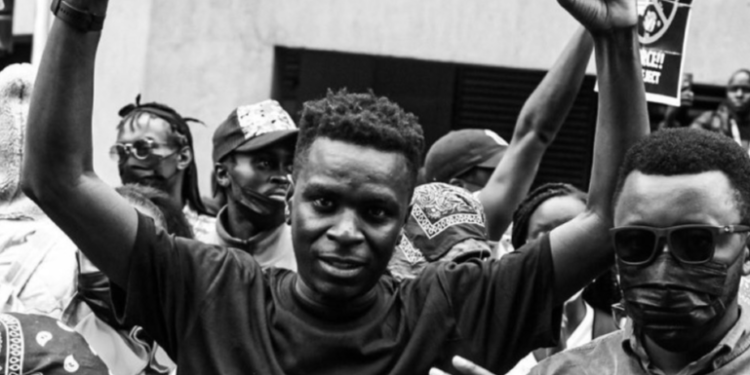The arrest of a prominent Kenyan content creator has ignited a fierce debate over freedom of expression in the country, with human rights organisations calling for his immediate release and clarity on the charges against him.
Billy Simani, known online as “Crazy Nairobian”, was reportedly detained by the National Police Service at an undisclosed location, prompting 25 human rights associations to issue a joint statement on Saturday demanding information on his whereabouts.
The coalition, which includes the Bloggers Association of Kenya, The Law Society, and Amnesty International Kenya, has called on the Directorate of Criminal Investigations to provide details on Mr Simani’s arrest and ensure his constitutional rights are upheld.
“We remind all state officers and the public that any infractions of [constitutional rights] and forcibly abducting, holding of persons incommunicado or the denial of visitation rights are crimes under our laws,” the statement read.
The arrest has sparked widespread public outcry, with the hashtag #FreeBilly trending at number one on X, formerly known as Twitter. A live audio discussion on the platform in support of Mr Simani attracted over 50,000 listeners, with a previous seven-hour session drawing 1.2 million participants.
Dennis Itumbi, a prominent pro-government digital strategist, offered insight into the possible reasons for the arrest. “I understand he sent threatening message/s,” Mr Itumbi stated on social media. “I get hundreds of those myself, & they do not bother me. But well, it is a crime.”
The human rights coalition has demanded that the government guarantee the right to freedom of expression for all Kenyans in line with the constitution. They have also called for the release of any other content creators currently under arrest and for independent state agencies to investigate these arrests.
The case has raised concerns about the broader implications for free speech in Kenya, particularly in the context of ongoing protests. The coalition urged the government to issue a public undertaking that no Kenyans would be arrested for expressing their opinions online or for supporting current protests.
Legal experts have pointed to Article 49 of the Kenyan Constitution, which outlines the rights of arrested persons, including the right to be informed promptly of the reason for arrest, to remain silent, and to communicate with an advocate.












